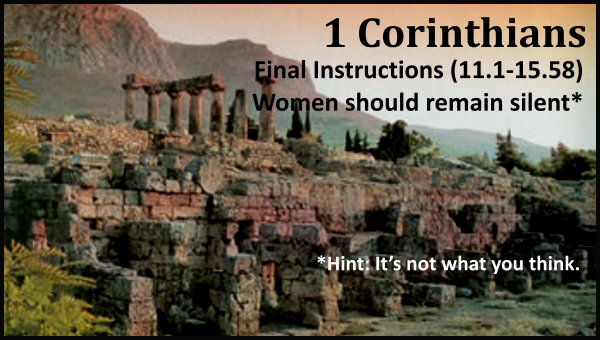By Tyson Thorne

There is one more often misunderstood instruction left to this chapter. Beginning in verse 33 Paul states that “women should remain silent in the churches. They are not allowed to speak, but must be in submission, as the Law says.” Is Paul suddenly revealing a flash of chauvinism? Is he now trying to inject some Old Testament law into Christian living? On the contrary, but to understand this teaching we must understand the circumstances that prompted it. In Paul’s day, women were not formally educated and most of the men were. What difference does this make? Good question.
Women were not part of the business community and therefore had little opportunity to learn a trade. As mentioned in chapter eleven, they often could not buy something in the marketplace without a sign of a husband’s authority (usually a head covering). They were often illiterate. Unless a woman married, her only chance of survival was to become a prostitute. Also, the early church followed the Jewish synagogue in its style of worship. This meant that men would sit on one side, closest to the speaker, and women on the other. All this is important to our understanding of Paul’s command. Now, with these facts in mind, what were the circumstances? Verse 35 states “If they [women] want to inquire about something, they should ask their own husbands at home.” Again, Paul’s chief concern in this chapter is orderly worship. When a woman did not understand some aspect of the lesson, they would attempt to gain their husbands attention and ask him about it. This was disruptive and lent itself to disorder rather than order.
This “command” of Paul’s then is a cultural one whose application today would accomplish disorder rather than the order Paul was intended. Instead, we must acknowledge and revel in our unity of worship; we must understand and appreciate our diversity in backgrounds and gifted-ness; above all else we must strive to excel at loving God and others; and when we come together to worship our Lord and King we are to do so peacefully and in an orderly fashion befitting the God of order and peace. Tongues being used as a “prayer language,” or where many speak at the same time, and such practices as “holy laughter” all fly in the face of these teachings. We are to worship God in both spirit and mind, and to allow our mind to guide our spirit in that practice.
|
|
